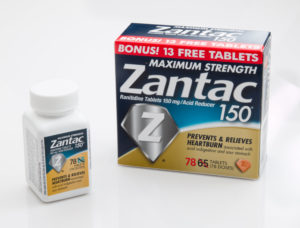Hurricane Sandy releases fury on east coast; LTC facilities evacuate
A map showing the thousands of LTC facilities in the path of Hurricane Sandy. (Source: Google Maps)
Updated 11:00 p.m. The coastal areas along the New Jersey shore and low-lying regions of New York are experiencing high winds, heavy flooding and power outages while witnessing the inner bands of Hurricane Sandy.
The lessons learned from Hurricane Irene seem to have prompted better advanced planning by businesses and faster compliance with evacuation orders, according to ongoing Twitter reports from local governors.
General evacuations began Sunday from Connecticut to southern New Jersey. By Monday, most vulnerable New York hospitals canceled elective surgeries to free up beds for emergencies. New York Downtown Hospital was evacuated completely because of backup power concerns, according to local media reports.
Nursing homes and hospitals in New Jersey quickly followed suit. Approximately 900 elderly residents were evacuated without incident in New Jersey, the American Health Care Association (AHCA) told Long-Term Living. “Our folks were tracking this storm and reaching out to the authorities last week,” said Greg Crist, AHCA’s director of communications. "We feel good about the plans we have in place and our ongoing collaborations with our state and federal partners."
New Jersey's Gov. Christie ordered evacuations this morning for the Barrier Islands, closed the Holland Tunnel, and will close the Garden State Parkway in both directions near Woodbridge Twp. this afternoon, according to Tweets from the governor’s office (@GovChristie).
An unusual collision of weather fronts will cause Sandy to make a sharp turn toward the west instead of continuing up the east coast. Residents in Pennsylvania, Ohio and West Virginia should be preparing now for the possibility of power outages and sustained flooding.
Elderly seniors in those states, especially those near flood-prone areas, should pack a small bag now in case a move to higher ground becomes necessary. Check on medication and other supplies, pack a spare pair of glasses and don’t forget some fresh water and high-calorie snacks, suggests Linda Fodrini-Johnson, executive director of Eldercare Services, San Francisco, in an article written in advance of the storm. Those who require refrigeration for their medicines should be sure to have a small cooler or box on hand and should freeze ice-packs or zip-top bags of water in advance.
RESOURCES
Rx Response (www.rxresponse.org) is monitoring the status of pharmacies across the affected region. Click on the map to see if your local pharmacies are open. If you see anopen pharmacy near you, be sure to call before travel to ensure it is still open.
TRACKING VIA TWITTER
Connecticut: Keep up with breaking updates from the governor's office Twitter feed (@GovMalloyOffice).
Delaware: A driving ban for all but essential vehicles is in effect as of Monday. Keep up with breaking news via the governor's office Twitter feed (@GovernorMarkell).
Maryland: The Ocean City pier collapsed earlier today and coastal towns are experiencing severe flooding. Keep up with the latest news via the governor's office Twitter feed (@GovernorOMalley).
New Jersey: Keep up with roadway, bridge and tunnel closures and other storm-related news via Twitter (@njdotgov) or the governor's office feed (@GovChristie) the web.
New York: Keep up with news and road closures via the governor's office Twitter feed (@NYGovCuomo).
I Advance Senior Care is the industry-leading source for practical, in-depth, business-building, and resident care information for owners, executives, administrators, and directors of nursing at assisted living communities, skilled nursing facilities, post-acute facilities, and continuing care retirement communities. The I Advance Senior Care editorial team and industry experts provide market analysis, strategic direction, policy commentary, clinical best-practices, business management, and technology breakthroughs.
I Advance Senior Care is part of the Institute for the Advancement of Senior Care and published by Plain-English Health Care.
Related Articles
Topics: Clinical , Disaster Preparedness , Executive Leadership











